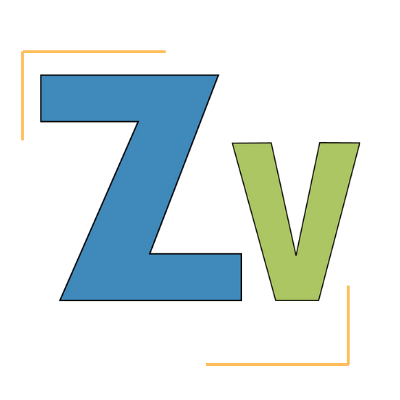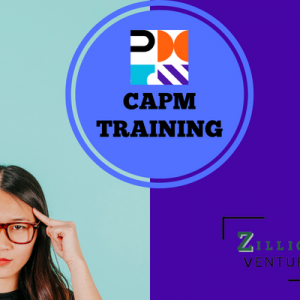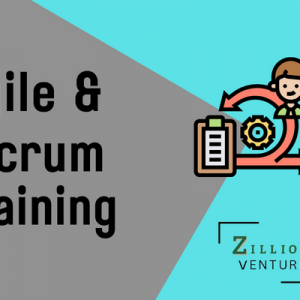Overview
PMI-ACP Certification
PMI-ACP Certification training program is aligned with the 2015 PMI® guidelines and is designed to help you clear your PMI-ACP Certification exam in the first attempt. Additionally, this course will empower you to become a versatile agile professional with the knowledge of Scrum, Kanban, Lean, extreme programming (XP) and test-driven development (TDD).
Please fill in the inquiry form on this page or call now on +1 (281) 670 – 7771 or e-mail info@Zillionventure.com for our training consultant to understand your training and learning objectives and guide you with an optimum way to achieve your goals.
Please follow us on Facebook, Twitter, LinkedIn, Google+, Youtube etc. and share your experience with our PMI-ACP Certification Training.
Key Features
PMI-ACP Certification
Classroom Training:
- 24 hours of Instructor-led Training
- 100% Money Back Guarantee*
- 25 hrs of High-Quality e-Learning Content
- Industry Case study and Real life examples
- End-of-Chapter Quizzes & Simulation Exams
FAQ
PMI-ACP Certification
Who delivers the training?
All Our Trainers are PMI-ACP® credentials holders and highly qualified with over 15 years of experience in training and are working in the Agile domain.
Is the course aligned to the latest exam and course changes implemented by PMI®?
Yes our training is completely aligned to the latest update done to the course by PMI® for the year 2015.
What certification do I get post the training?
After successful completion of the training, you will be awarded the course completion certificate along with the 21 hours PDU certificate from Zillion. Once you successfully clear the PMI-ACP® Certification exam, you will also receive the Prestigious PMI-ACP® certification from PMI®.
What is online classroom training?
PMI-ACP® Online classroom training is a live training conducted via online live streaming of a class. The online classroom is run by a trainer who is PMI-ACP® credential holder with over 15 years of work experience in the domain and training. The class attended by the global audience can enrich your learning experience.
Are these training LIVE or do I attend a pre-recorded video?
All these training are live interactive sessions wherein you can raise concerns and discussions at any point during the class. Additionally, we also provide recordings of the sessions attended by you for your future references.
What infrastructure do I need to attend this session?
The system requirements are quite basic:
OS: Windows any version above XP SP3 & Mac any version above OS X 10.6
Internet Speed: Preferably above 512 KBPS
Headset: Any decent headset and microphone which can be used to talk and hear clearly.
What all will I get as part of the training?
You get access to our e-learning content along with the practice simulation tests. You will also get an online participant handbook with cross references to the e-learning for reinforcement of your learning.
Is exam fee included in the course fee?
No. The exam fee is not included in the course fee as it is directly paid by you to the Project Management Institute (PMI)® for the application and examination.
How many questions are there in the PMI-ACP® exam?
The PMI-ACP® examination will consist of 100 scored items and 20 unscored (pre-test) items. The unscored items will not be identified and will be randomly distributed throughout the exam. The Duration of the PMI-ACP® exam is 3 hours.
What certification do I get post the training?
After successful completion of the training, you will be awarded the course completion certificate along with the 21 hours PDU certificate from Zillion. Once you successfully clear the PMI-ACP® Certification exam, you will also receive the Prestigious PMI-ACP® certification from PMI®.
Do you provide assistance for the exam application process?
Yes, we do provide assistance for the exam application process.
How does Zillion assure me that the training and course material delivered is effective?
Our course is designed to deliver a first attempt pass rate of 100%. With a hands-on learning approach, the training not only gives you the confidence to clear the exam but also helps you retain the knowledge beyond the examination.
Can I cancel my enrollment? Do I get a refund?
Yes, you can cancel your enrollment. We provide you a refund after deducting the administration fee. To know more, please go through our Refund Policy.
I want to know more about the training program. Whom do I contact?
Please join our Live Chat for instant support, call us, or Request a Call Back to have your query resolved.
About the Course
PMI-ACP Certification
PMI-ACP Certification training program is a professional requirement across the IT/Tech industry for all project management roles globally. This certification is best suited for:
Project managers
Agile Team Members
Associate/Asst. Manager – Projects
Team leads/Managers
Project Executives/Engineers
Software Developers
Any professional aspiring to be a Project Manager
What are the course objectives?
This course will enable you to:
Develop the knowledge and skills required to clear the PMI-ACP Certification exam along with the requisite 21 PDUs
Develop a working knowledge of the Agile Principles of SCRUM, KANBAN, XP and TDD
Develop the expertise of implementing multi iterative development models for any scale of projects
Develop the ability to deliver high Velocity Stories and Epics
Exam And Certification
PMI-ACP Certification
How will I become a PMI®-Agile Certified Practitioner?
You would have to take up a formal training on PMI® Agile Certified Practitioner. Additionally, you need to take up a PMI membership, and pay the exam fee directly to schedule your exam. Once you clear the exam successfully, you will be awarded the prestigious PMI-ACP® certificate from PMI.
Disclaimer:
PMI, PMBOK, PMP, PgMP, CAPM, PMI-RMP, PMI-ACP are registered trademarks of the Project Management Institute, Inc.
Course Agenda
PMI-ACP Certification
Agile Certified Practitioners(ACP)® Exam Prep Syllabus
PMI-ACP Certification Overview
Value of PMI – ACP Certification to the Professional
Value of PMI – ACP Certification to the Organization
PMI – ACP Eligibility Requirements
PMI – ACP Timeline
PMI – ACP Certification Fees
PMI – ACP Certification Maintenance & Renewal
PMI – ACP Exam Information
PMI –ACP Exam Blueprint
Practice Questions
Sources of Information
About the Agile exam, format and what is tested
Introduction to Agile
What is Agile
How Has Agile Evolved
The Agile Manifesto
Principles of Agile Manifesto
Definition of Agile
Benefits of Agile
Agile: Real Life Example
Agile Methodologies
Agile Methodologies, Frameworks, and Processes
Scrum
Scrum Roles
Scrum Meetings
Extreme Programming (XP)
Extreme Programming Process Diagram
Five Core Principles of XP
The Crystal Methodologies
Dynamic Systems Development Method (DSDM)
Principles of DSDM Atern
Feature Driven Development
Feature Driven Development Cycle
Agile Project Management
APM Framework
The APM and PMBOK
Lean Software Development
Lean Principles
Kanban
Lean Kanban Method
OpenUP
Agile Controversy
Communication
Project Communication
Information Radiators
Task Boards
Big Visible Charts
Continuous Integration Build Health Indicators
Effective Information Radiators
Team Space
Co-located vs. Distributed Teams
Osmotic Communications
Daily Stand-up Meeting
Agile Tooling
Agile Planning, Monitoring, and Adopting: Part 1
Multiple Levels of Planning
Aligning Agile Projects to Programs and Portfolios
User Story: Card, Conversation, and Confirmation
User Story: Attributes
Story Card Information
Theme and Epic
Timeboxing
Advantages of Timeboxing
Prioritizing Requirements: MoSCoW
Release Plan
Agile Planning, Monitoring, and Adopting: Part 2
Velocity
Iteration Plan
Velocity-Driven Iteration Planning
Commitment-Driven Iteration Planning
Iteration: Mid-Course Corrections
Release Plan vs. Iteration Plan
Release Burndown Chart
Burndown Charts
Burndown Bar Charts
Burnup Charts
Cumulative Flow Diagrams
CFD: Little’s Law
Work-in-Progress: Detailed
Agile Planning, Monitoring, and Adopting: Part 3
Kanban Boards
Kanban Cards
Retrospectives
Techniques to Conduct Retrospectives
Agile Process Tailoring
Agile Estimation: Part 1
Measures of Size
Relative Estimating
Story Points
Story Points and Estimating
Value Points
Ideal Days
Comparing the Approaches
Estimation Scale
Planning Poker
Agile Estimation: Part 2
Accuracy vs. Precision
Wideband Delphi
Wideband Delphi Process
Affinity Estimation
Estimation using T-shirt Sizing
Affinity Estimation Process
Silent Relative Sizing
Edit the Wall
Place Items into Relative Size Buckets
Store the Data
Agile Analysis and Design
Agile Product Roadmap
Product Backlog
Agile Story Maps
Agile Wireframes
Chartering
Components of Agile Project Charter
Agile Personas
Agile Modeling
Agile Quality
Quality in Agile
Agile Frequent Verification and Validation
Test-First Development
Acceptance Test Driven Development
ATDD Cycle
Definition of Done
Checklist for Story Completion
Continuous Integration
Soft Skills Negotiation
Agile Emotional Intelligence
EI and Scrum Masters/Agile Project Managers
Emotional Intelligence Skills Assessment Framework
Benefits of Emotional Intelligence
Collaboration Technology
Adaptive Leadership: ‘Doing Agile’ Tools
Agile Negotiation and Conflict Management
Five Levels of Conflict by Speed Leas
Agile Conflict Resolution
Servant Leadership
Agile Servant Leadership
Value -based Prioritization
Forecasting
Time Value of Money: Terminologies
Calculation of Future Value and Present Value
Return on Investment
Net Present Value
Internal Rate of Return
Payback Period
Agile Compliance
Prioritization
Prioritizing Requirements: MoSCoW
Prioritizing Requirements: Kano Model
Categories: Kano Model
Prioritization Requirements: Relative Weighting
Agile Customer Valued Prioritization
Minimum Marketable Feature
Introduce slack
Manage Change
Agile Risk Management
Risk Management in Agile
Risk Adjusted Product Backlog
Risk Management Lifecycle
Risk Identification
Risk Assessment: Categories
Risk Assessment: Risk Census
Risk Assessment: Risk Board
Risk Burndown Chart
Risk Response Strategies
Risk Review
Risk Profile Graphs
Progressive Risk Reduction
Risk-Based Spike
Agile Metrics
Agile Metrics
Types of Metrics
Velocity
Unit of Measure for Velocity
Velocity at Work: Burn Charts
Burndown Chart: Line Style
Burndown Chart: Bar Style
Burnup Chart
Combined Burn Chart
Cycle Time
Lead Time vs. Cycle Time
Earned Value Management for Agile
EVM Terminologies
Earned Value Metrics with Formulae
Earned Value: Planning Parameters
EVM for Agile
Baseline Metrics
Measuring Metrics
Result Interpretation
Managing Scope Change
Escaped Defects
Agile Value Stream Analysis
Value Stream Mapping
Value Stream Mapping: Process
Mapping Seven Wastes of Lean Manufacturing to Software
Agile Flowcharts
Flowchart Symbols
Agile Spaghetti Diagrams
Benefits of Spaghetti Diagram
Knowledge and Skills: Part 1
Active Listening
The Agile Manifesto
Assessing and Incorporating Community and Stakeholder Values
Agile Brainstorming Session
Building Empowered Teams
Coaching and Mentoring within Teams
Agile Coaching
Coaching at Levels
Skills of an Agile Coach
Knowledge and Skills: Part 2
Agile Communication
Feedback Techniques
Incremental Delivery
Knowledge Sharing
Agile Problem Solving
Agile Problem Solving Techniques
Agile Leadership
Knowledge and Skills: Part 3
Project and Quality Standards for Agile Projects
Stakeholder Management
Agile Team Motivation
Agile Team Motivation: Maslow’s Theory
Agile Team Motivation: Frederick Herzberg’s Theory
Agile Team Motivation: McClelland’s Theory
Agile Team Motivation: Boehm’s Theory
Building High-Performance Teams
Characteristics of High-Performance Agile Teams
Collaborating Collocated Teams
Deliberately Distributed Teams
Distributed vs. Collocated Teams
Agile Facilitation Methods
Agile Participatory Decision Making
Knowledge and Skills: Part 4
PMI Code of Ethics and Professional Conduct
Process Analysis Techniques
Self-Assessment
Agile Contracts
Fixed Price Fixed Scope Contract
Time and Materials Contract
T and M with Fixed Scope and Cost Ceiling
T and M with Variable Scope and Cost Ceiling
Agile Compliance
Control Limits for Agile Projects
Agile Failure Modes
Agile Coach Failure Modes







Reviews
There are no reviews yet.